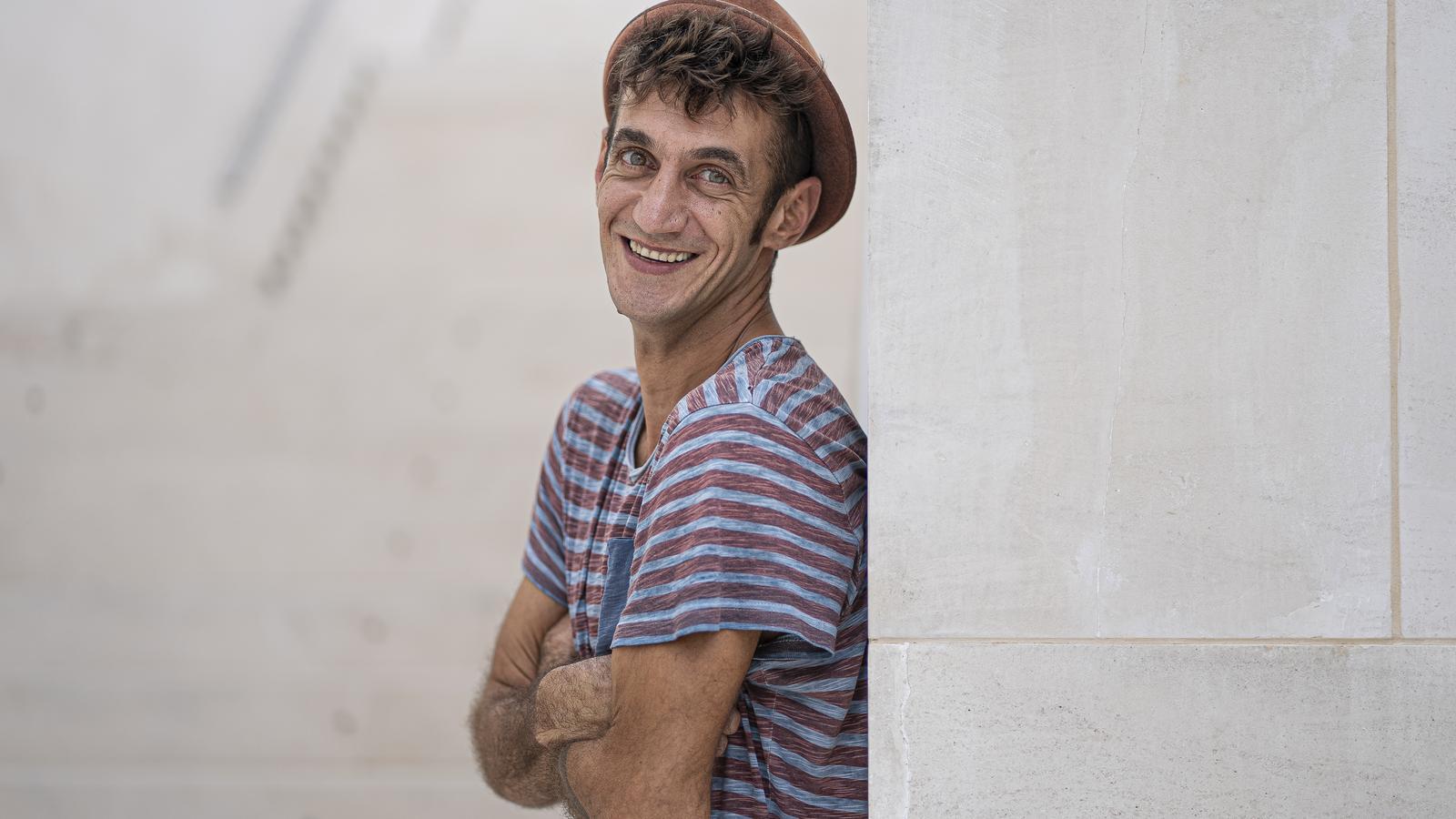"Our son, when we're in the same place for two days in a row, already calls it 'home.'"
Pau Palaus is currently one of our most international clowns.


When he was 17, Pau Palaus saw a show by clown Leandre Ribera for the first time, and it changed his life. "I went to see him for three days in a row. My friends asked me, 'What does he do?' And I didn't know what to answer: he did nothing, and he did everything," explains Palaus. Although he studied forestry management, Pau left a steady job as a tree arborist to embark on the performing arts: "I started a clown course at the Rogelio Rivel school, but I only lasted two weeks because I didn't understand anything they were explaining to me; they didn't teach me how to do what that clown did."
Pau Palaus is part of that movement of contemporary clowns who seek provocation through utmost simplicity. "Year after year, I try to make it simpler and simpler—we call it that." complexly simple"When there's an explicit message, a lot of context, a great stage set... I get the feeling that the clown is hidden. I prefer to leave some air so that everyone can make their own interpretation of the shows," he explains. An ambiguity that also pushes through silence. "The word pigeonholes you; on the other hand, a gesture can be interpreted in many ways," he says. Audience participation is also very important in his shows: "What sets me apart from other people who improvise with the audience is that I like to take care of people, not to expose them too much or laugh at them, but to make them feel protected on stage. People are much more eager to play than we think, but they need to feel cared for."
With his own company, Pau travels all over the world. In the last month, for example, he has performed in Barcelona at the CaixaForum Summer Nights; the following day he went to South Korea, then to Denmark, France, and Portugal, and this week he will perform in Italy. He feels strongly about some aspects of the traditional circus; one of them is the itinerant spirit, as he always travels with his partner, the company's producer, and their son, who is now five years old. "Our son also appears in the fact sheets because we believe that traveling families can't leave their child alone at home and then go away. You could say he was born inside a big top, and in fact, after two days in the same place, he already calls out to us." home", explains Palaus.
This semi-nomadic life has to fit in with their educational itinerary. "When we're traveling, in the van, he himself asks to do math, write... and when he returns to the village school everything is easy: they tell us he always has lots of stories to tell and that this is also learning. Now that he's starting primary school at the public school, we'll see how it goes," she confesses. When they're not traveling, they live in a farmhouse in Arbúcies, curiously an area where other circus companies have their base of operations. "When we travel around the world, we're constantly meeting people who tell us, 'You're doing so well.'" But when you get home and have to run the brushcutter, it helps keep your feet on the ground."
One of the issues that appeals to him most, as an artist and as a father, is that of new technologies, which are also very present among the public. "When I do street shows, above all, I often want to look people in the eyes and all I see are cell phones, because they're recording me the whole time. I can't tell them anything because I don't talk, but I would tell them that there are already plenty of videos of the shows on the internet," he explains. In the shows he gives, in fact, there is a conscious absence of technology. "My mission is to make time stand still in the shows. Soon we'll be super innovative by making this so simple and zero-technological," he says.
Another priority Pau has clear when thinking about his profession is social commitment. "When you're speaking from a place of love, and the person listening has a soft heart, you can say really outrageous things and they'll be more accepted than if you said them shouting," he explains. In the limited time his shows allow him, he also participates in the Contaminando Sonrisas project, which takes the circus to areas affected by armed conflict or natural disasters. "When I started, I used to be called clown, perhaps because it seemed to me that it gave more cacheOver time I have realized that the figure of the clown "It has more to do with contact with people, with the town. And clowns have always been involved in social causes, like Payasos Sin Fronteras, the Pallapupes, the Saniclowns...", says Pau. With Contaminando Sonrisas he has been to places like Nepal, Morocco –after the 2023 earthquake– or Valencia, after the DANA, "You have to create a shell because you go there to make people laugh, to try to improve their mood, but it has a big impact on you, especially when you return home and think about everything you have seen."
